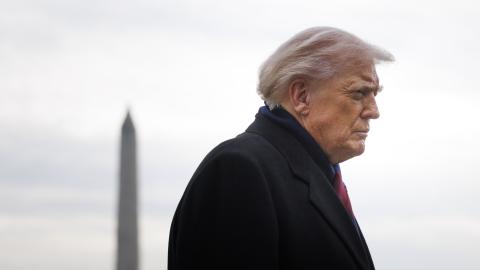Congress is immersed in a four-month sprint leading up to August recess, working to tackle a bevy of pressing issues from taxes to transportation spending. But looming large, perhaps below the surface, is a critically important domestic policy fight in how we should regulate the Internet. Following the largest government intervention into the Internet ecosphere in American history in February by the Federal Communications Commission, the question is actually clear: Will Congress — including Virginia Sens. Tim Kaine and Mark Warner — work together to reach a compromise to preserve Internet openness without using the blunt weapon of telephone regulations as deployed by the FCC?
For years Washington has debated how to keep the Internet open and free from government or private coercion. Regulation proponents have argued that new rules are needed to prevent Internet service providers, such as phone, wireless and cable companies, from blocking or degrading the online content or applications consumers want. Though no market failure exists, and regulators have never conducted a study to diagnose the alleged potential illness, the FCC has three times tried to impose new rules on the Web — and has lost twice in court.
Nonetheless, hiding behind the catchy “net neutrality” moniker and acting outside of its congressionally mandated powers, the FCC is now equating the dynamic 21st century Internet to the telephone system of 1934 — something it is not. As a result, the commission is thrusting powerful but antiquated utility-style regulations that allow regulators to set rates, terms and conditions on services across the U.S. tech economy.
To justify its massive power grab, the FCC essentially argued “the Internet is horribly broken and only the government can fix it.” Yet history teaches that utility-style regulation of a networked industry raises costs to consumers, reduces investment and innovation and creates uncertainty due to the politics-driven nature of “mother-may-I-innovate” government mandates. Regulation only seems to grow. Now the Internet cannot escape that fate.
What many of the most vocal supporters of this policy fail to understand is that nearly any “tech” company that builds a telecom-style network to deliver its content and apps has the potential to be captured by the FCC’s new rules. If the agency tries to exempt some companies but not others, it will be choosing the politically favored over everyone else and increase its litigation risk.
More poignantly, the FCC’s lurch to regulate discards the bipartisan light-touch framework for the ’Net laid out during the Clinton administration. That hands-off approach made the ’Net the greatest deregulatory success story of all time.
Fortunately, there is room for Kaine and Warner, as well as the rest of Congress, to act. Draft bills continue to drive bipartisan discussions on Capitol Hill that could undo the FCC’s utility rules while still attaining the White House’s ostensible policy goals.
Net neutrality supporters could achieve their long-sought goals of restating protections for consumers and tech start-ups, doubly ensuring that Internet service providers could not unlawfully block or throttle content and applications or impose anti-competitive prioritization requirements, and creating congressionally defined enforcement authority for the FCC. They could also enjoy, for the first time, the certainty that a court cannot hand them another loss.
For opponents of new FCC rules, the bills could take utility regulations off the table, restore regulatory certainty, protect free speech, and create a legal firewall that would protect investment and innovation in the Web’s computer-network infrastructures from more government meddling.
If Congress can intervene and institute sensible and lasting policy, the government can attain its stated policy goals — no blocking, no throttling and no anti-competitive fast lanes — be protected by legislative certainty, and bask in the glow of achieving statesmanlike bipartisan consensus. The future of the Internet, and America’s digital economy, deserve no less.

















